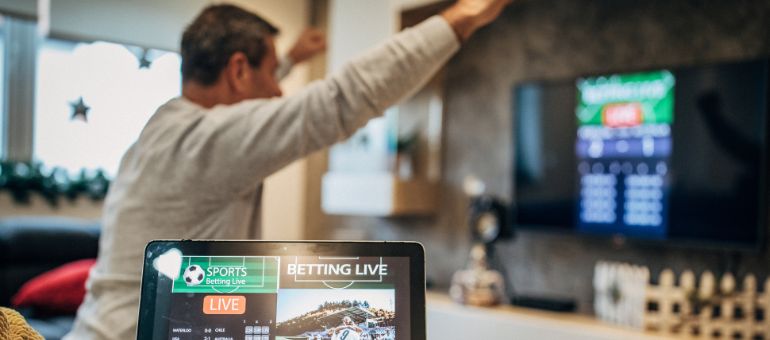Do the Risks Outweigh the Instant Reward?
The S&P 500 and Dow Jones Industrial Average notched new records in October 2024 as earnings season kicked off. However, while the major indicators continue hitting all-time highs and a record share of Americans now own stocks, a growing number of stockholders appear to be vacating the market in favor of sports betting.
The growing popularity of online sports betting is a worrisome trend at a time when Americans continue to struggle with price increases and as a concerning percentage of people are projected to exhaust their savings during retirement. So, it's particularly important to understand the distinctions between gambling and investing, which are two activities that are sometimes inaccurately conflated.
The first distinction is that stocks involve ownership. Shareholders maintain an interest — albeit a small one, for most investors — in the ongoing affairs of publicly traded companies, whereas bettors own nothing.
Another distinction is that while both investing and gambling involve certain measures of risk and reward, the former can produce stable gains over time. The latter involves short-term risk with historically negative statistical outcomes.
For example, investing in an S&P 500 index fund, which emulates the performance of the broad stock market, has produced an average annual return of 10.52% over the past 30 years. Conversely, this year researchers at the University of California, San Diego found that of the more than 700,000 gamblers they surveyed, 96% percent lost money to online betting. Just 4% turned a profit.
Additionally, publicly traded companies are regulated by the U.S. Securities and Exchange Commission and are required to file quarterly earnings reports that provide investors with access to visible balance sheets and income statements. That information can help prospective and current shareholders hedge against potential losses. Online sports betting largely operates on conjectures about athletes' performances, weather conditions or other circumstantial, unsound and highly theoretical factors.
For many investors, deciding to purchase shares of a company is a decision based on data that shows consecutive quarterly revenue and earnings growth. However, assuming the Miami Dolphins will cover a 10-point spread because the Buffalo Bills aren't acclimated to subtropical temperatures and stayed out too late in South Beach is simply gambling.
A study in July led by Scott Baker, an associate professor of finance at Northwestern University, found that households increased their bets by $1,100 per year while simultaneously decreasing their investments by 14% when states legalized sports betting. The Professional and Amateur Sports Protection Act, aka the Bradley Act, was overturned in 2018. According to Sportsbook Review, that year Americans placed $6.6 billion in online sports bets, by 2021 that figure exploded to $121.1 billion.
As this trend continues to advance, it could lead to concerning implications for household budgets and long-term investment expectations as gamblers continue to divert funds away from the markets. Online sports betting is now legal in 38 states and Washington D.C. Baker states that the consequences of sports betting aren’t equal across the board. Low-savings households are more likely to divert funds from their investments to betting activity.
While stock ownership is at 17-year high, lower income households are already in the minority of shareholders. The top 50% of wealthy Americans own 99% of all stocks and the bottom 50% of American earners hold just 1% per Federal Reserve data.
Baker’s study also found that online sports betting has contributed to the increase of credit card debit for low-savings households, as well as an increase in overdraft fees, all resulting in lower credit scores.
For a lot of people, it is hard to see the value of compounding growth over three decades versus hitting a parlay and have some great gains today.
Is the instant windfall worth the reward in the long run?

